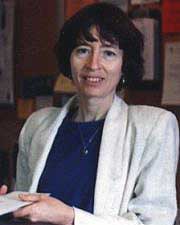
From its roots in the 15th-century Latin translation called the "Corpus Hermeticum" to best-selling books by Deepak Chopra, Eckhart Tolle, and Carolyn Myss, "metaphysical religiosity has always been as pervasive as the air we breathe," says Catherine L. Albanese, professor of religious studies at the University of California, Santa Barbara.
In her new book, "A Republic of Mind and Spirit: A Cultural History of American Metaphysical Religion" (Yale University Press, 2007), Albanese tells the story of American metaphysical religion -- the practical cultural world predicated on beliefs about symmetry and interpenetration between a vastly larger world, which includes concepts of God, nature, mind, and truth, and more ordinary expanses such as the individual, human society, and the world. In metaphysical religion, the mind's powers are mediated as flow and energy, and they work in healing ways. Albanese follows metaphysical traditions from Renaissance Europe to England and then to America, where they have flourished from colonial days to the 21st century, blending often with African, Native American, and other cultural elements.
The book follows evolving versions of metaphysical religion, including Freemasonry, early Mormonism, Universalism, and Transcendentalism, and further incarnations such as Spiritualism, Theosophy, New Thought, Christian Science, reinvented versions of Asian ideas and practices, and the New Age movement.
From the mid-20th century and on, Albanese shows how the metaphysical mix has broadened to encompass UFO activity and channeling, and how it then minimized these concerns in favor of the pursuit of spiritual energy, especially under the metaphor of healing. Chakras -- the seven basic energy centers of the body -- became a major element of the New Age movement and part of a "broader new spirituality."
In its own way, Albanese argues, American metaphysical religion has been as vigorous, pervasive, and influential as the evangelical tradition that is more often the focus of religious scholars' attention. She makes the case that because of its combinative nature -- its abilities to incorporate differing beliefs and practices -- metaphysical religion offers key insights into the history of all American religions.
Metaphysical religion "overlaps with all kinds of traditional religions, even in some cases with evangelicalism," she says. "The beliefs and practices of metaphysical religion are especially combinative. Thus, they are a particularly good illustration of the observation that the longer different religions exist together in the American milieu the more similar they become."
Albanese, who has a Ph.D. in American religious history from the University of Chicago, specializes in religion in the U.S. in the 19th and 20th centuries, religion and American culture, metaphysical religion in the U.S., and religion and healing. She joined the UCSB faculty in 1987 and currently is chair of the Religious Studies Department.



